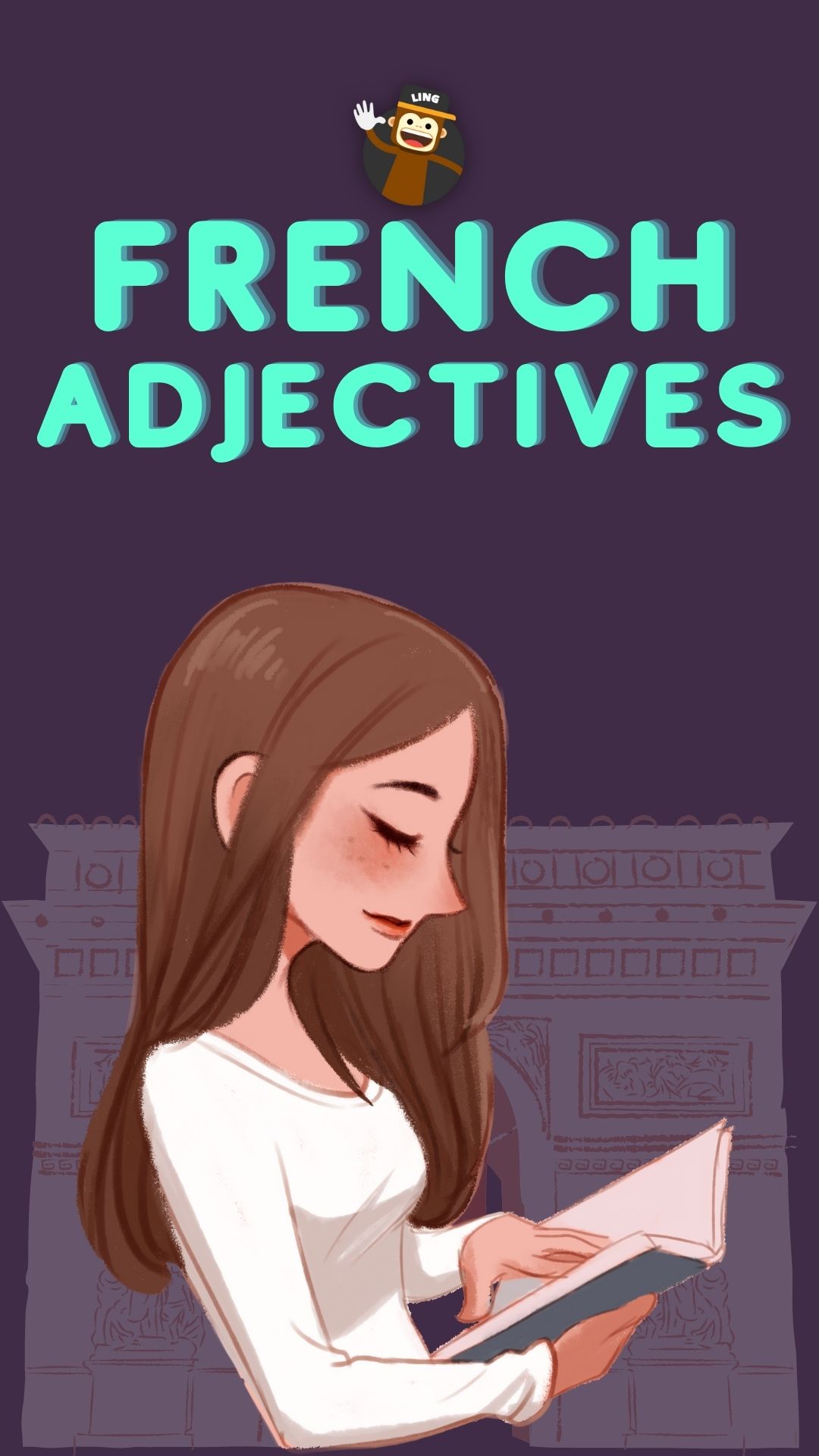Fortunately, in today’s lesson, you will find some rules that will make it easier for you to understand how to place and use French adjectives.
In English, adjectives are easy to use. You put them before the nouns they describe, and you are done. So, you would say “a greenhouse” or “a blue bag.”
However, in French, the positions of adjectives vary. So, you would say “une maison verte” (lit: a house green) or “un sac bleu” (lit: a bag blue). If this is not enough to puzzle you, French adjectives will also vary depending on whether the noun they describe is feminine, masculine, singular, or plural.
French Adjectives Go Before the Noun If…
Remember this little acronym: B-A-N-G-S.
Beauty: Adjectives like beau – beautiful and joli (e) – pretty go before the noun as they are describing beauty.
Age: Adjectives like Vieux/Vieille – old and jeune – young go before the noun.
Numbers: Well, they go in front of the noun
Goodness: Adjectives that we use to say how bad or good something is, like mauvais(e) – bad and bon(ne) – good, will go before the noun.
Size: Adjectives like haut(e) – high, gros(se) – fat and petit(e) – small are front-runners as well.
EXCEPTION: Grand(e) used before oneself means “great,” as in un grand homme (a great man), but after oneself means tall. So un homme grand is “a tall man.”
An Easy Guide For French Adjectives With Examples
French Adjectives For Feminine And Masculine Words
If you have learned a little French, then you will know the terrible feminine and masculine words, and you may even have heard of the same adjectives. French adjectives must correspond to the person speaking, so men are “grand” (tall), and women are “grande.” Add “e” to make it a female adjective.
It may sound quite simple, but the French also have masculine and feminine things! Over time, you will learn to recognize the gender of words. Sometimes there are rules, and sometimes you must know what is feminine and masculine.
Here are some examples of French adjectives (feminine and masculine) with nouns that you may already know:
- Un bol rond – a round bowl
- Une assiette ronde – a round plate
- Une petite porte – a little door
- Un petit mur – a little wall
- Une télévision neuve – a new television
- Un ordinateur neuf – a new computer
What Are The French Adjectives?
It is a list of the most common descriptive French words. If you add the letter “e” to the end of the word, it will become their feminine equivalent:
- petit – small
- grand – tall/big
- mauvais – bad
- bon – good
- belle or beau – beautiful
- froid – cold
- gentil – kind
- chaud – hot
For example, “petit” (small) will become “petite.” Likewise, when a word ends in a vowel, then a consonant, we must double the last letter before adding the ‘e.’ For example, bon/bonne, gentil/gentille.
Note: Some adjectives change entirely when they become feminine. For example, as you saw above, “beau” becomes “belle.”
Some French adjectives do not have the equivalent of the feminine. Many of these are French adjectives that already end with the letter ‘e.’ Here are some common examples of adjectives that stay the same for both genders:
- confortable – comfortable
- difficile – difficult
- calme – calm
- facile – easy
- riche – rich
- pauvre – poor
- propre – clean
- timide – shy
- sympathique – kind
- sale – dirty
- sympa – kind/nice
Plural
Once you have mastered the masculine and feminine forms, you need to understand the French adjective agreement for plural nouns. Simply put, when we add an “s” to a noun to make it plural, we also need to add an “s” to the adjective.
- A big lake– Un grand lac
Two big lakes– Deux grands lacs
- The pink shoe– La chaussure rose
The pink shoes– Les chaussures roses
Of course, this is the French we are talking about, and things have never been as simple as people imagined! We have seen the feminine gender, we have seen the plural, and now we need to combine the two to create the feminine plural.
- Les chaises hautes – High chair (meaning = both bar stools and baby high chairs)
- Les tables basses – Low tables (meaning = coffee tables)
Here is a revision of when to use French adjective agreement with the word “petit”:
- Le petit garçon (masculine singular) – the little boy (masculine singular)
- La petite fille (feminine singular) – the little girl (feminine singular)
- Les petits garçons (masculine plural) – the little boys (masculine plural)
- Les petites filles (feminine plural) – the little girls (feminine plural)
When using plural feminine and masculine objects or talking about females and males, always the default is masculine (e.g., little children = les petits enfants).

Other Important And Common French Adjectives
Adjectives For Daily Use: 26 Most Common French Adjectives
Phrases In French Using French Adjectives
Master Yourself In French With Ling App
That’s it, and you now know the most common French adjectives. Practice will enable you to speak fluent French.
The Ling app aims to make language learning as simple, fun, and accessible as possible. It uses various mini-games and interactive learning techniques. In addition, if you have any questions, please visit our FAQ page, or follow us on Facebook! Or you can also download the Ling app on the Play Store or App Store.






















